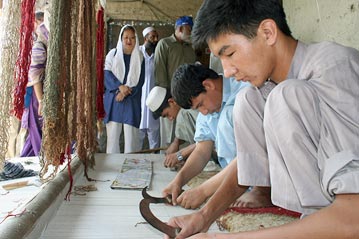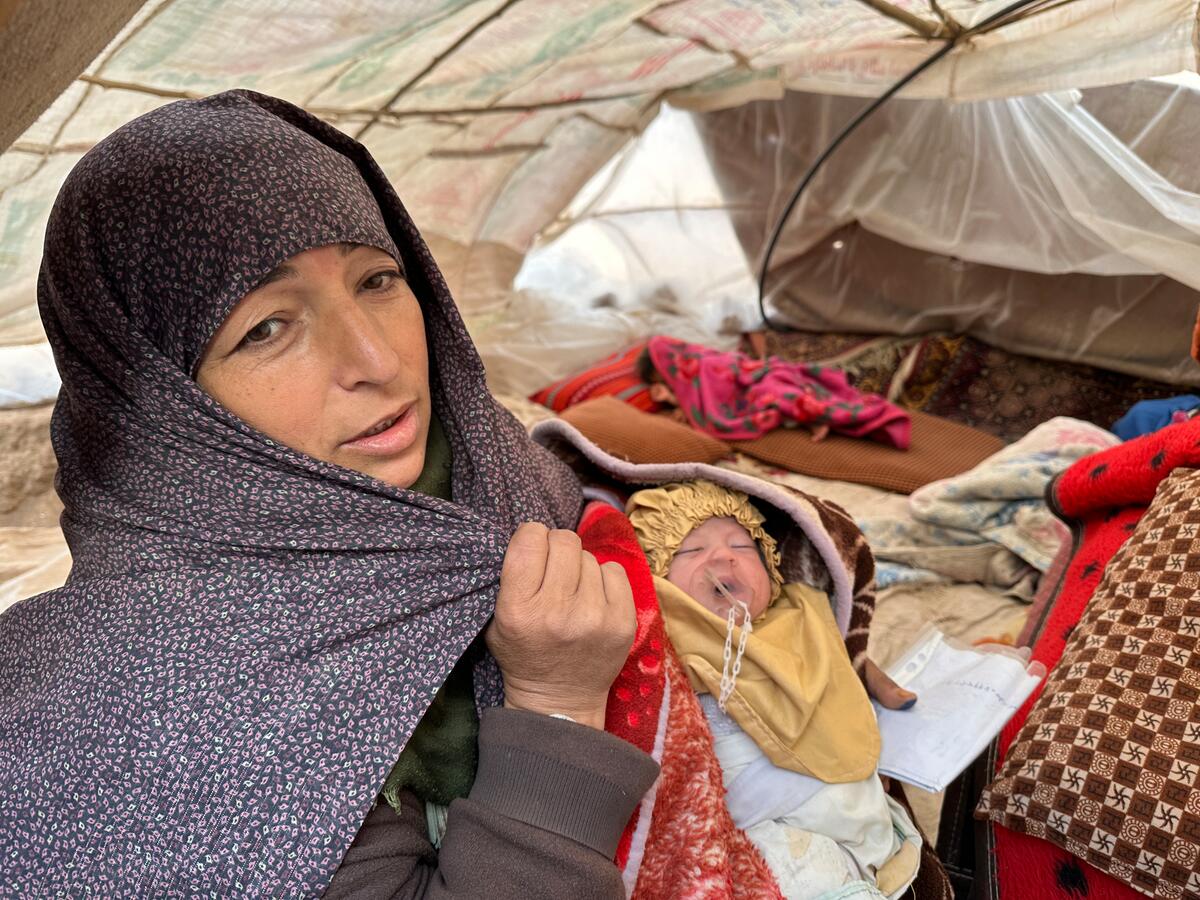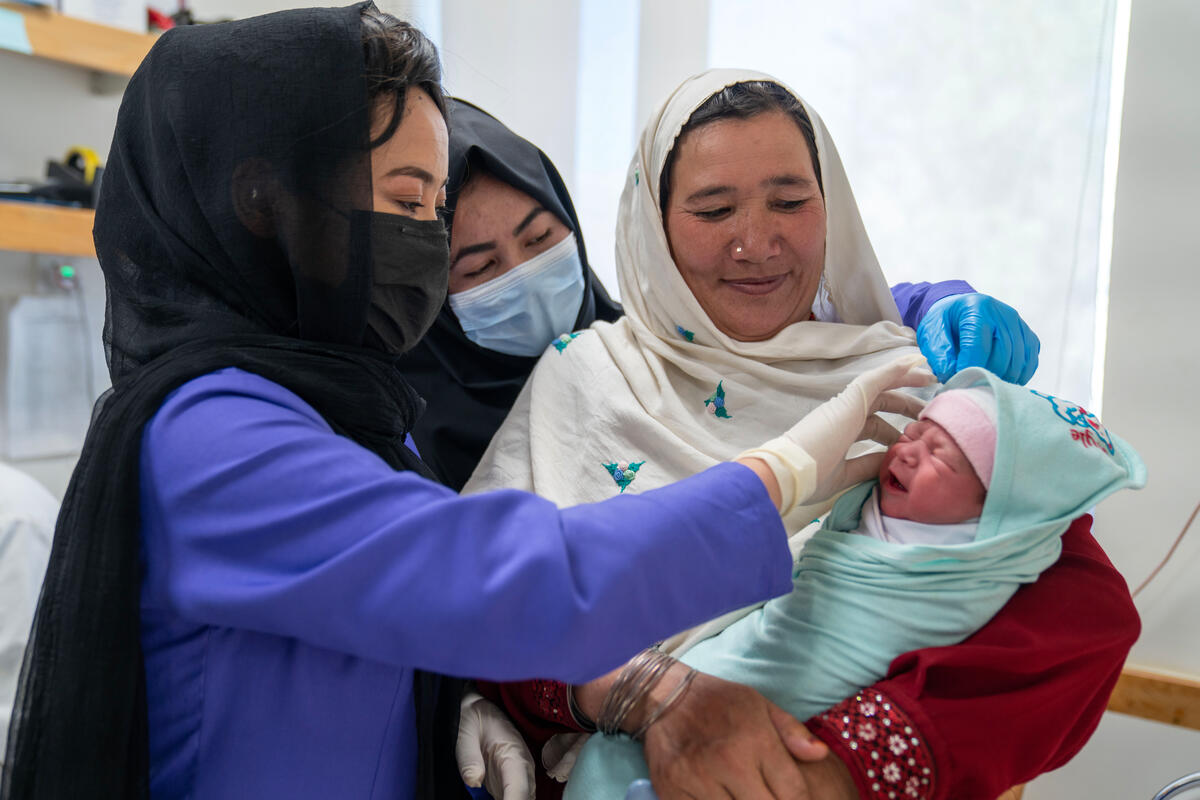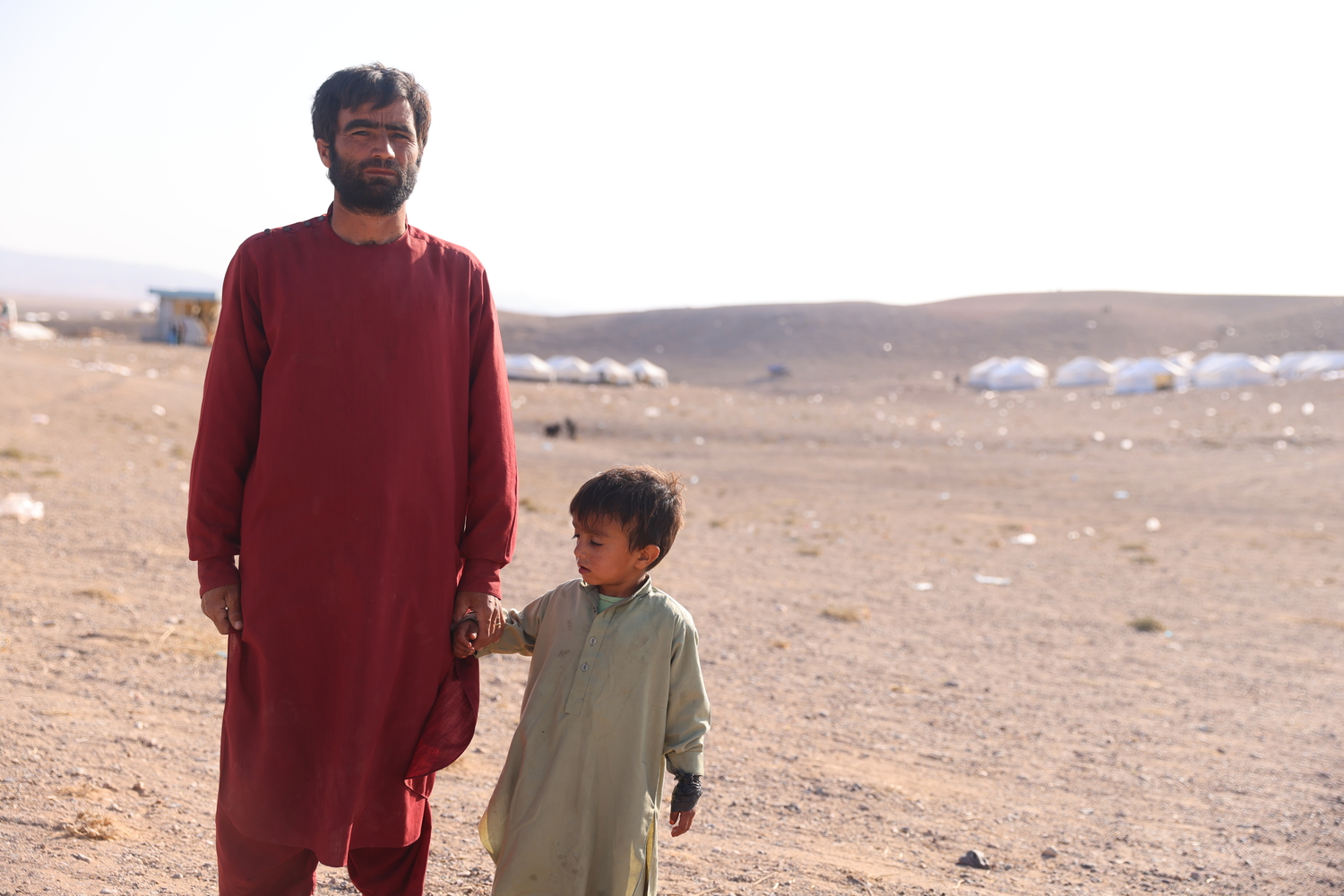Afghans still in Pakistan face challenges to return
Afghans still in Pakistan face challenges to return

ISLAMABAD, Pakistan, August 7 (UNHCR) - On a visit to refugee camps in Pakistan, the UN refugee agency's Assistant High Commissioner for Operations emphasized that repatriation of Afghans will be gradual because of the many difficulties they have in returning to their homeland.
"Now we have around three million Afghans left in these two countries - slightly under one million in Iran and slightly over two million in Pakistan. This becomes a real challenge for ourselves and our government counterparts," Judy Cheng-Hopkins, UNHCR's Assistant High Commissioner for Operations, said on Saturday at the end of her five-day visit to Pakistan.
On her first visit to Pakistan since assuming her post, Cheng-Hopkins visited two Afghan refugee camps in the North-West Frontier Province to talk with refugees. She had meetings with Pakistan's Minister for the States and Frontier Regions (SAFRON), Ministry of Interior, Governor of the North-West Frontier Province and other senior officials.
"Obviously, these groups (of Afghans) are the people who have the strongest ties to this area - to the North-West Frontier Province and to Balochistan. In fact, most were born here. So it is difficult for them to make up their minds to return," Cheng-Hopkins said. The two provinces host the bulk of the Afghans in Pakistan.
A UNHCR-supported government registration drive from October 2006 to February 2007 gave Proof of Registration (PoR) cards for three years to 2.15 million Afghans in Pakistan, allowing temporary residence. Of those, some 100,000 have already left Pakistan.
While in Pakistan, Assistant High Commissioner Cheng-Hopkins signed a three-year extension of the tripartite agreement with the Pakistan and Afghan governments, which covers the stay of Afghans in Pakistan and their voluntary repatriation to Afghanistan
In Khurasaan refugee camp, located just outside Peshawar and home to 8000 Turkmen Afghans, Cheng-Hopkins visited a carpet weaving facility. Around a million Afghan refugees currently live in over 80 refugee camps in Pakistan.
"Carpet weaving pays off well for Afghans involved in the job. A metre of woven carpet brings around 3,000 to 4,000 rupees to each worker - around $50 to $60," Haji Saffar Muhammad, a camp resident, told Cheng-Hopkins.
Young Afghan girls welcomed her with a national song of hope and glory for Afghanistan at a centre established by UNHCR partners to rehabilitate Afghan carpet weaving women addicted to opium.
"Women who weave carpets all day long take opium because they find it very relaxing and soothing. But they do not realize that gradually they become addicted. We educate women about the side affects," Nasim Bibi, an Afghan worker for the centre, told visitors. "Women earn more by weaving carpets. They only opt for learning other skills after having health problems."
Pakistan, Afghanistan and UNHCR, in extending the three-party agreement, set the principles of voluntary and gradual returns for remaining Afghans in the country.
"I think it is very important to note that all three parties have agreed the returns should be voluntary and gradual. Why gradual? Because the conditions are such within Afghanistan, with lack of infrastructure, insecurity and lack of livelihood, that it is difficult for the country to absorb millions of people returning," Cheng-Hopkins said.
Pakistan noted it hoped that Afghans would return home by the end of 2009 when the tripartite agreement ends, with a target this year of 800,000. "This is just a target we hope to achieve," said Abdul Rauf Khan, Chief Commissioner for the Commissionerate of Afghan Refugees.
However, Cheng-Hopkins urged flexibility: "It is always good to put a deadline, to put a numerical goal. But as we all know in such a complex situation, where people have been here for decades and where the ties are so strong (between the two countries), we have to be flexible and understanding. Obviously try to keep to the target, but not use it as a hard and fast rule."
Ms. Cheng-Hopkins also noted the challenge of making returns sustainable: "Having just come from Afghanistan, we had lots of discussions both here (in Pakistan) and in Afghanistan regarding the question of re-integration of the refugees. Obviously people will come home and they will stay in a sustainable manner only if they have shelter, they have some form of livelihood. If not, as you can imagine, what would happen is they will come back across again."
She said Pakistan and UNHCR had been asking the Afghan government and the international community to invest in infrastructure, shelter and livelihood for the Afghan returnees. Since the start of UNHCR voluntary repatriation from Pakistan and Iran in 2002 some five million Afghans have returned home.
By Babar Baloch in Islamabad
and Rabia Ali in Peshawar








